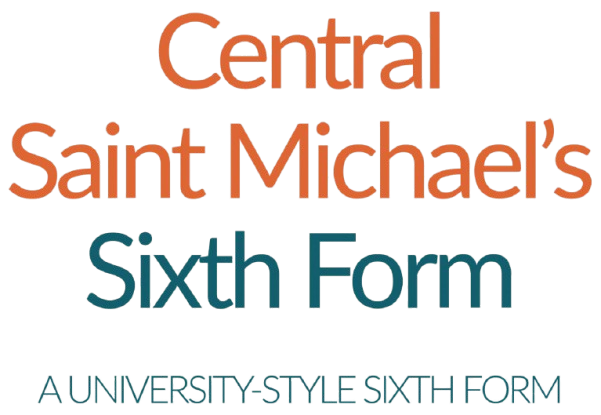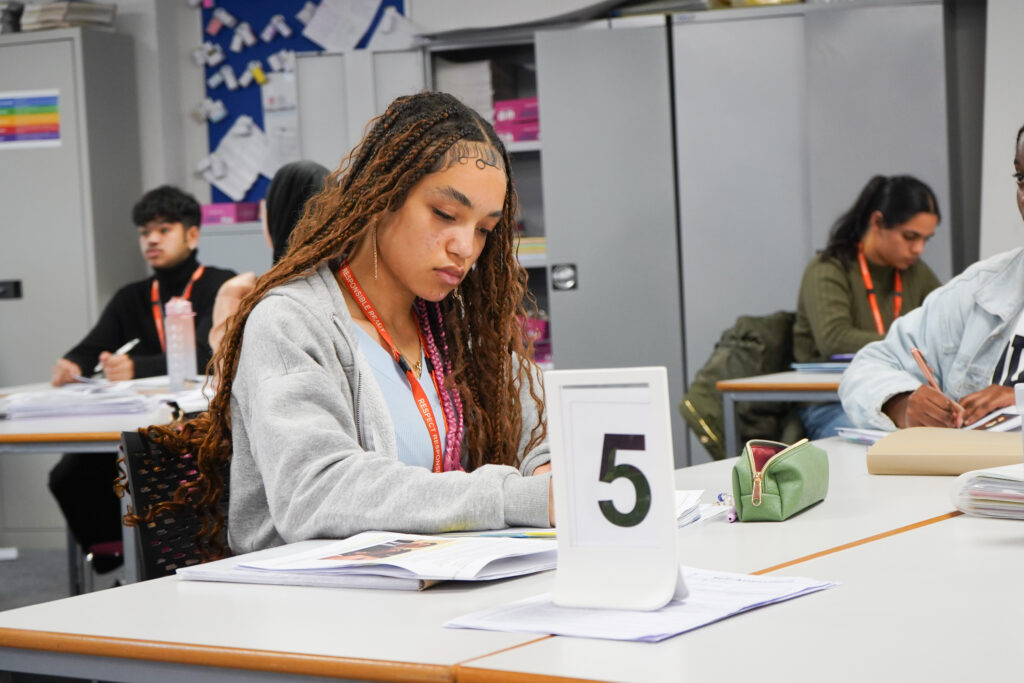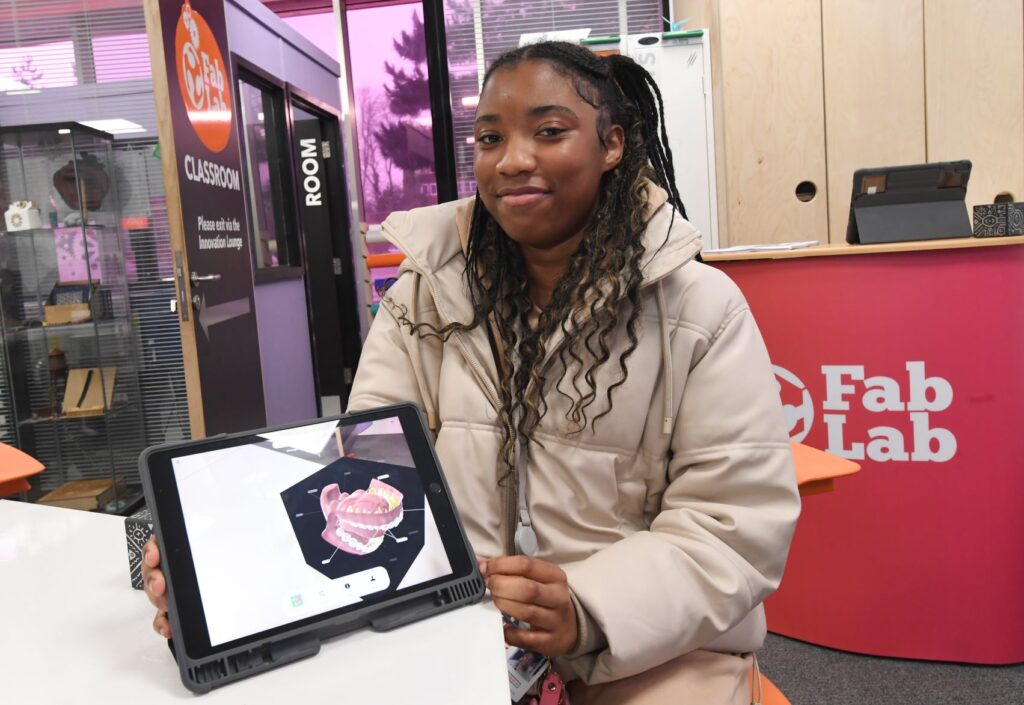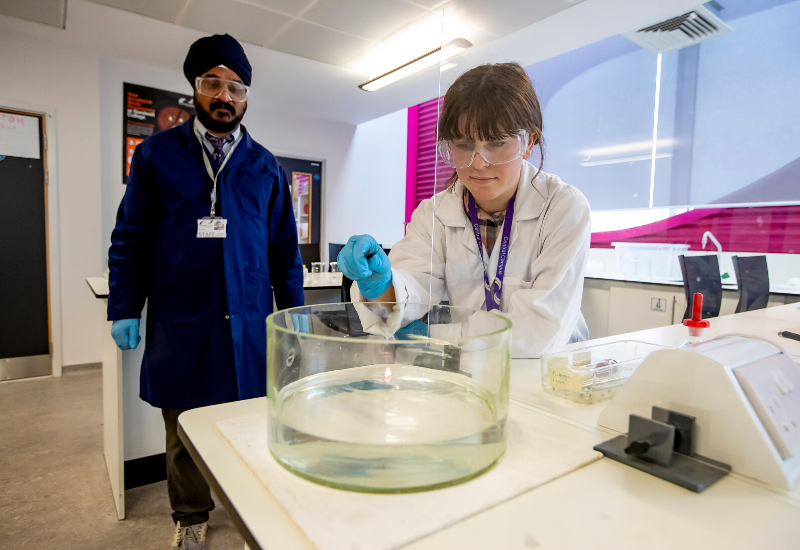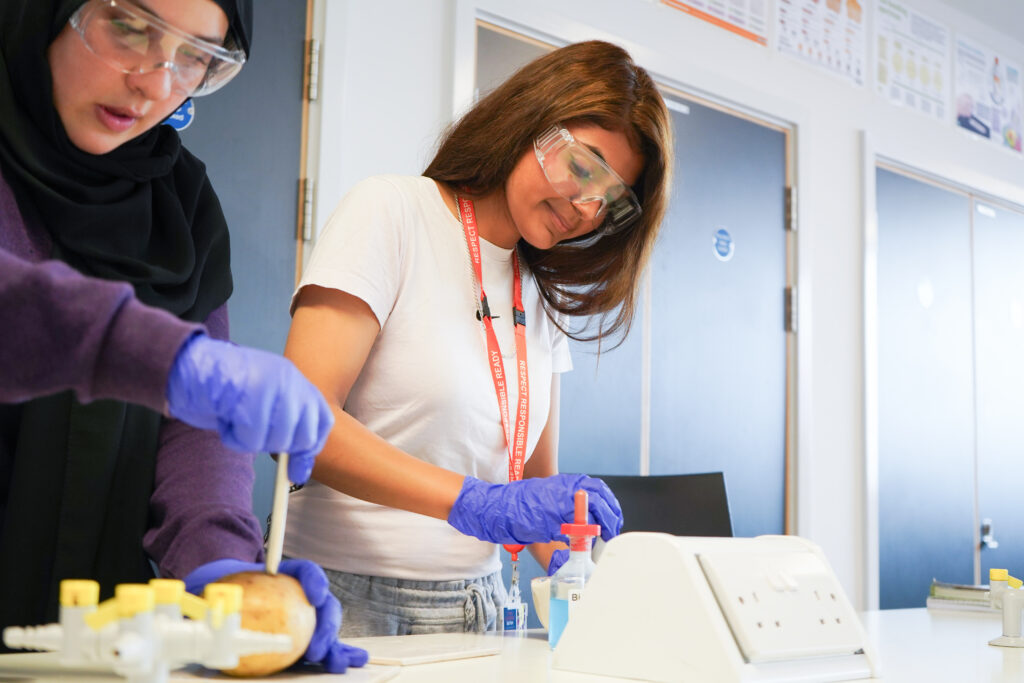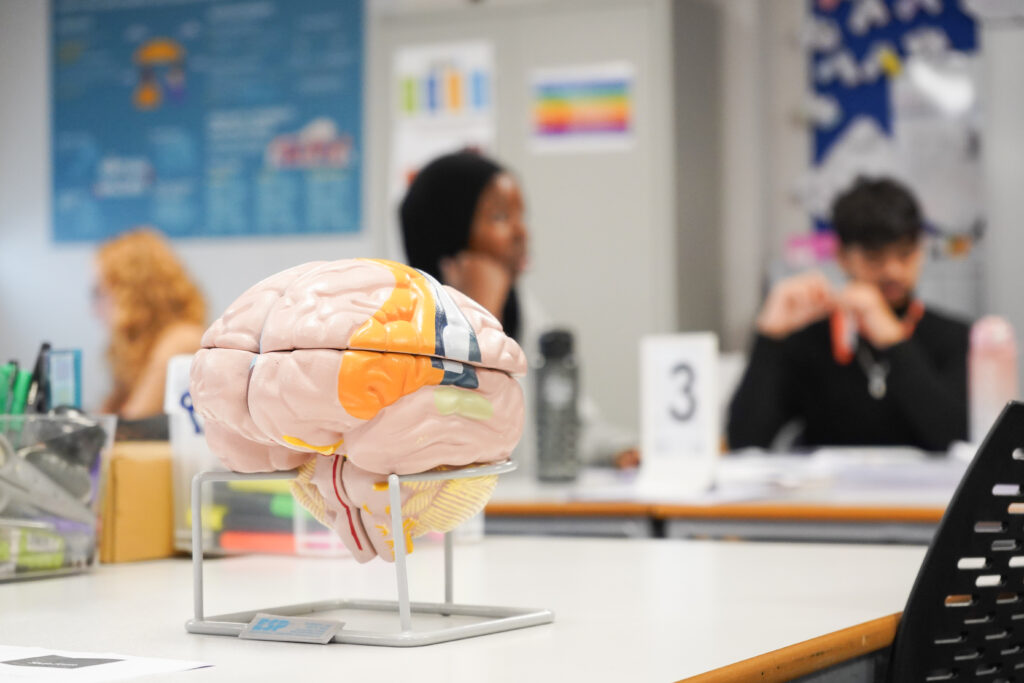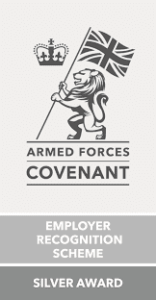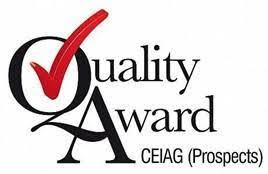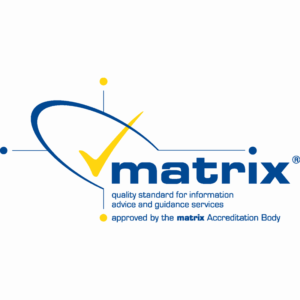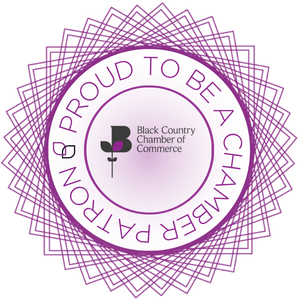Students who enjoy science and are interested in a science career, but prefer hands-on learning rather than just reading from textbooks, will benefit from a National Diploma and Extended Diploma in Applied Science (Forensic and Medical) qualification.
You learn in a more practical, real-world way, developing laboratory skills that employers are looking for. And if you prefer completing coursework and projects throughout the year instead of facing high-pressure final exams, this course gives you the chance to work on real scientific problems, and build skills that will prepare you for university or straight into a science career.
Whether you choose the Extended Diploma (equivalent to 3 A Levels) or the Diploma (equivalent to 2 A Levels), you’ll get a qualification that’s respected by universities and employers alike.
Content Overview
This is a two-year programme with two different qualification pathways:
- National Diploma in Applied Science
- Extended Diploma in Applied (Biomedical) Science
Year 1
Core Units
Unit 1: Principles and Applications of Science I
Unit 2: Practical Scientific Procedures and Techniques
Develops fundamental practical skills used in analytical science professions
Unit 3: Science Investigation Skills
Part A: 45 min practical experiment
Part B: 1 hour 30 min written exam
Assesses your ability to plan, manage data, and evaluate experiments, and covers 5 core content areas in science.
Year 2
Advanced Units
Unit 4: Laboratory Techniques and their Application
Builds on practical skills from Unit 2 and provides a perspective on careers within science that utilise laboratory workspaces. This unit has 4 assignments, two of which cover health and safety and handling data. The remaining two are assessed by reports on practicals where you make organic products and also research how these are made in industry.
Unit 5: Principles and Applications of Science II
Unit 6: Investigative Project
Requires good practical skills, lab safety understanding, and grasp of key concepts. In this coursework you will develop your own practical that tests a hypothesis of your choice. It is designed to prepare you for future studies with a similar set up to a dissertation. You will research, plan and carry out the practical and present your findings with support from your supervisor.
Additional units will depend on your specific pathway, so for example Analytical and Forensic Science includes Unit 8: Physiology of Human Body Systems.
Unit 7: Contemporary Issues in Science
Evaluates understanding of contemporary scientific issues and publications
Part A: Review of provided scientific articles
Part B: Formal assessment
Unit 8: Physiology of Human Body Systems
Three assignments with a mix of presentation and essay work which look at three body systems: the Musculoskeletal, Lymphatic and Digestive systems. Here you look at the structure and function of the organs within each organ system, provide an overview of common disorders of each system and the effective treatments available for patients.
Unit 9: Human Regulation and Reproduction
Three assignments with a mix of presentation and essay work which look at three aspects of human biological control: the nervous control of breathing and heart rate, homeostasis and hormonal control of reproduction. Here you look at the structure and function of the organs within each organ system, provide an overview of common disorders of each system and the effective treatments available for patients.
Unit 10: Biological Molecules and Metabolic Pathways
Three assignments with a mix of presentation and essay work which look at the structure and function of biological molecules such as DNA, proteins and water, how metabolism works in humans and how plants complete photosynthesis both using biological molecules in those pathways.
Unit 11: Genetics and Genetic Engineering
Four assignments which cover the structure and function of DNA, how cells divide and may develop mutations and how genetic traits are passed down through generations. The final assignment of this unit is on genetic engineering and provides you with the fundamental understanding of how genetic engineering can be used in different applications in healthcare, materials science and other technologies.
Unit 21: Medical Physics Applications
This unit has two in-depth assignments based on working within a healthcare setting that uses radiation and non-radioactive procedures to visualise, diagnose and treat different disorders. The first assignment looks at the scientific principles behind a range of tools used in medical physics. You will research and present on the way that patients are prepared for their treatment/examinations.
Unit 23: Forensic Evidence, Collection and Analysis
This unit has four assignments which look at aspects of the use of science techniques that students have learned in other units on the course and how they are applied to the processing, documenting and presentation of evidence in court to support in obtaining justice. We look at crime scenes, the roles of the crime scene investigator and the forensic scientist, analysis of the evidence and getting useful information.
